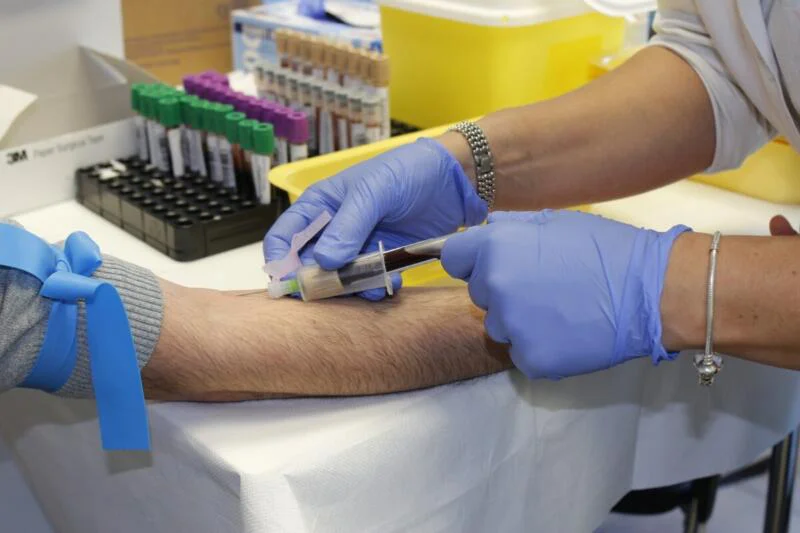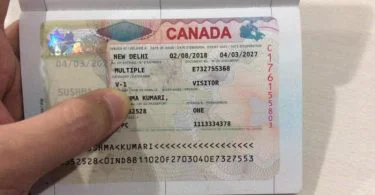Thousands of international citizens apply yearly for a study permit to seek higher education in Canada. Schooling in Canada is so famous that Immigration, Refugee, and Citizenship Canada (IRCC) recently launched a 24-month restriction on new international students as an action planned to control the inflow of global citizens.
Commonly, there are currently three stages a candidate is required to take to acquire a study permit. This procedure involves acquiring an Acceptance Letter from their Canadian designated learning institution, a Letter of Attestation from the region or territory where the Designated Learning institution is situated, and then applying for a study permit from Immigration, Refugee, and Citizenship Canada.
Hence, international citizens wishing to study in Canada will also require a medical test in the four cases below.
- If the student is coming from an assigned visa-needed nation or province
- If the student will be in Canada for more than six months.
- If the person is a medical student
- If the student will operate in healthcare or another area, that draws them closer to kids or adults.
Table of Contents
Temporary Public Policy For Medical Tests
Until 6th October 2024, Immigration, Refugee, and Citizenship Canada have executed an approach on medical tests that permits some candidates for temporary residence and permanent residence to be excluded from concluding another medical test if they have already concluded one in the previous five years.
To be qualified for this exclusion, candidates are required to satisfy all four of the requirements below:
- The candidate must have applied or presently be applying for a permanent or temporary residence, including a study permit.
- The candidate is required to already reside in Canada.
- The candidate must have concluded a medical test in the past five years.
- The candidate’s past medical test must have demonstrated low or no threat to public health or security.
Knowing Medical Tests For Temporary Residents
Immigration, Refugee, and Citizenship Canada states that there are various procedures and approaches set up for medical tests based on whether the recipient is making an application for temporary residence or permanent residence in Canada.
Who Requires A Medical Test
For candidates of temporary residence, Immigration, Refugee, and Citizenship Canada (IRCC) states that the demand for medical tests is commonly dependent on the duration the person plans to remain in Canada.
Should you find this piece engaging, we kindly invite you to explore the wealth of content in our other articles:
- TD Bank Scholarships for Community Leadership in Canada
- Meti Japanese Internship Program 2024 For International Students
- Top 5 Training Scholarships for International Students
- What You Need to Know About Buying a Car in Canada
- Top 10 Cheapest Universities in The UK For International Students 2024: Fees And Courses
Particularly, Immigration, Refugee, and Citizenship Canada demonstrate that temporary residents who intend to remain in Canada for six months or less commonly do not require a medical test unless they intend to get employed in specific employments where public health must be secured.
Instances of such employment offered by Immigration, Refugee, and Citizenship Canada have to do with the following:
- Employees in healthcare environments
- Patient attendants in nursing and geriatric centers
- Medical students accepted to Canada to attend a higher institution
- Employees in primary or secondary school environments, or employees in child care environments.
- Employees who provide in-home care to kids, seniors, and people with disabilities.
The requirement also involves agricultural employees who have visited or resided in one of these nations for six months or more in a row in the year before they arrived in Canada.
On the contrary, temporary residents intending to remain in Canada for more than six months will demand a medical test if:
- The candidate resided in or traveled to one or more of these nations or provinces for six months or more in a row in the year before you arrived in Canada.
- While living in Canada, they will function in employment whereby public health is required to be secured.
- They are making an application for a parent and grandparent super visa.
Kinds Of Medical Tests
Immigration, Refugee, and Citizenship Canada points out that candidates may be subject to a measure medical test or a facilitated medical test, which Immigration, Refugee, and Citizenship Canada (IRCC) explains as a simplified medical test for quick operational cases such as humanitarian problems, and in other unique cases as specified by Immigration, Refugee, and Citizenship Canada (IRCC).
Note:Candidates cannot apply for a particular medical test, and IRCC will notify them which test they must take.
Who Can Execute A Medical Test
Only panel doctors assigned by Immigration, Refugee, and Citizenship Canada (IRCC) can execute the medical test needed for temporary or permanent residence candidates. On the contrary, candidates can only have their family physician conduct this test if IRCC assigns that individual.
Remember that Immigration, Refugee, and Citizenship Canada (IRCC), the test-executing physician, gives the last judgment concerning a candidate’s medical test.






